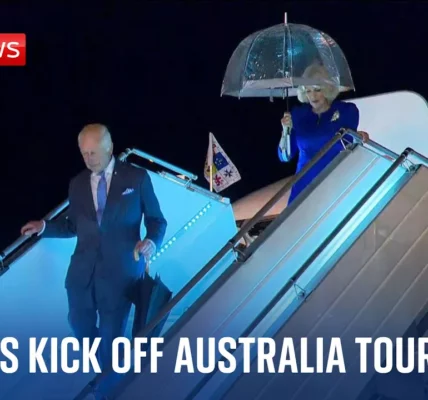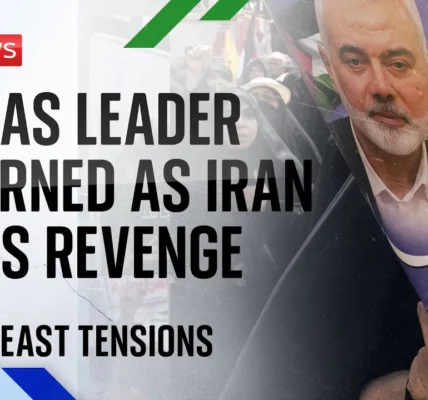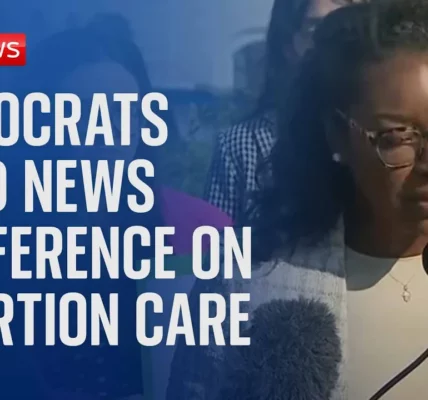Rishi Sunak Unveils Conservative Manifesto: A Closer Look at Tax Cuts and Voter Trust

In a pivotal moment for the Conservative Party, Rishi Sunak has launched a manifesto that promises significant tax cuts aimed at regaining voter trust. This article delves into the implications of these promises, the criticisms they face, and the broader context of UK politics as we approach the upcoming election.
Introduction
The release of Rishi Sunak’s Conservative Manifesto marks a critical juncture in the lead-up to the UK elections. With ambitious promises of tax cuts totaling £17 billion, the manifesto aims to address the party’s waning popularity and rekindle trust among voters. However, the proposal has not been without controversy, facing scrutiny from various economic think tanks and political commentators alike. This article will explore the manifesto’s content, the reactions it has elicited, and the implications for the electorate.
Overview of the Conservative Manifesto
Key Highlights of the Manifesto
Sunak’s manifesto was unveiled at the Silverstone motor racing circuit, a location chosen to symbolize speed and dynamism. The key highlights include:
- £17 billion in proposed tax cuts, focusing on National Insurance reductions.
- Pledges to aid first-time buyers in the housing market.
- Commitments to reduce the burden of public spending while maintaining essential services.
Target Audience and Intentions
The manifesto is strategically designed to appeal to middle and lower-income earners while attempting to shift the narrative away from the party’s past shortcomings. Sunak’s aim is to demonstrate fiscal responsibility while promising growth and support for those most affected by the cost-of-living crisis.
Criticism of the Tax Cuts
Reactions from the Opposition
The Labour Party and various independent think tanks have been quick to criticize the manifesto. Key points of contention include:
- Concerns about the sustainability of the proposed tax cuts amidst a backdrop of high public debt.
- Accusations that the cuts disproportionately benefit wealthier individuals, leaving lower-income families at a disadvantage.
- Assertions that the Conservative Party is failing to address the underlying fiscal challenges facing the country.
Analysis from Economic Think Tanks
Institutions such as the Institute for Fiscal Studies and the Resolution Foundation have provided critical analysis, arguing that the manifesto lacks credibility. They point out that the proposed cuts may be financially unfeasible given the current economic climate characterized by:
- A national debt exceeding £2.7 trillion.
- Increased borrowing following the COVID-19 pandemic.
- Ongoing public service demands that require sustainable funding solutions.
Voter Sentiment and Trust
The Challenge of Regaining Trust
Sunak’s efforts to restore trust among voters come at a time when the Conservative Party has faced significant challenges. The public perception of the party has been tarnished by:
- Years of austerity measures and public spending cuts.
- Policy decisions that have led to widespread dissatisfaction with essential services, including the NHS.
- High-profile scandals and leadership changes that have eroded confidence.
Public Opinion on the Manifesto’s Promises
Polling data suggests that while some voters are intrigued by the prospect of tax cuts, many remain skeptical about the feasibility and implications of the proposals. The general sentiment appears to lean towards caution, with a significant portion of the electorate questioning whether these promises can be fulfilled without further compromising public services.
The Broader Political Context
Implications for Labour and Other Parties
As the Conservative Party attempts to reposition itself, Labour is also preparing to unveil its own manifesto, which is expected to include commitments to increase the minimum wage for care workers. This development raises several questions about:
- How Labour will address the fiscal challenges posed by its own pledges.
- The potential for a competitive narrative between the two major parties regarding economic management.
- Voter fatigue with the current political landscape, which may influence turnout and election outcomes.
Conclusion
Rishi Sunak’s Conservative Manifesto is a bold attempt to reshape the party’s image and regain voter trust through substantial tax cuts. However, the accompanying criticisms and the ongoing economic challenges present significant hurdles. As both Conservative and Labour parties prepare for the upcoming election, the electorate remains cautious, aware of the complex realities behind political promises. As this political landscape continues to evolve, it is crucial for voters to remain informed and engaged. For further insights into UK politics and election analysis, explore our related articles.
“`




